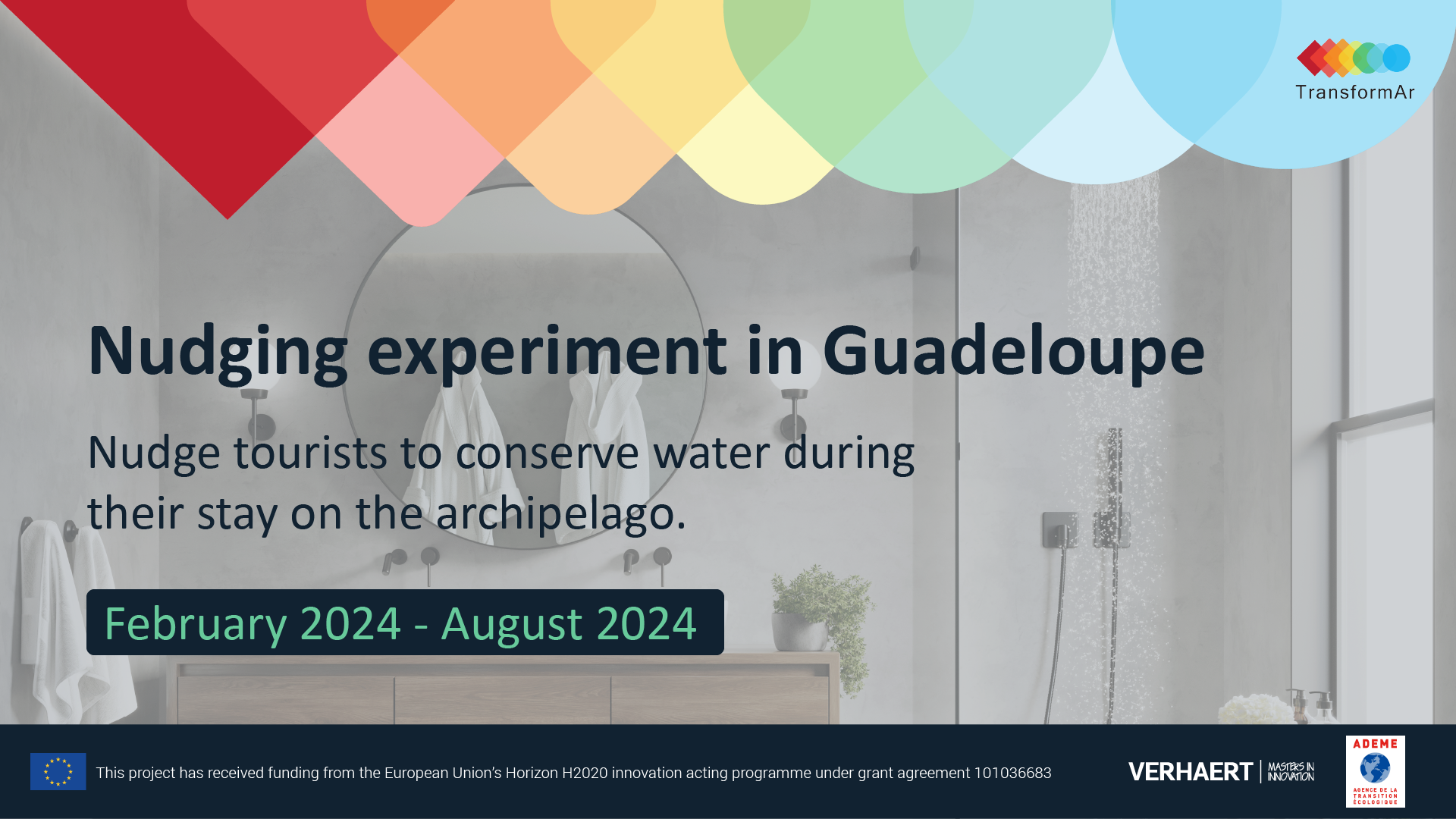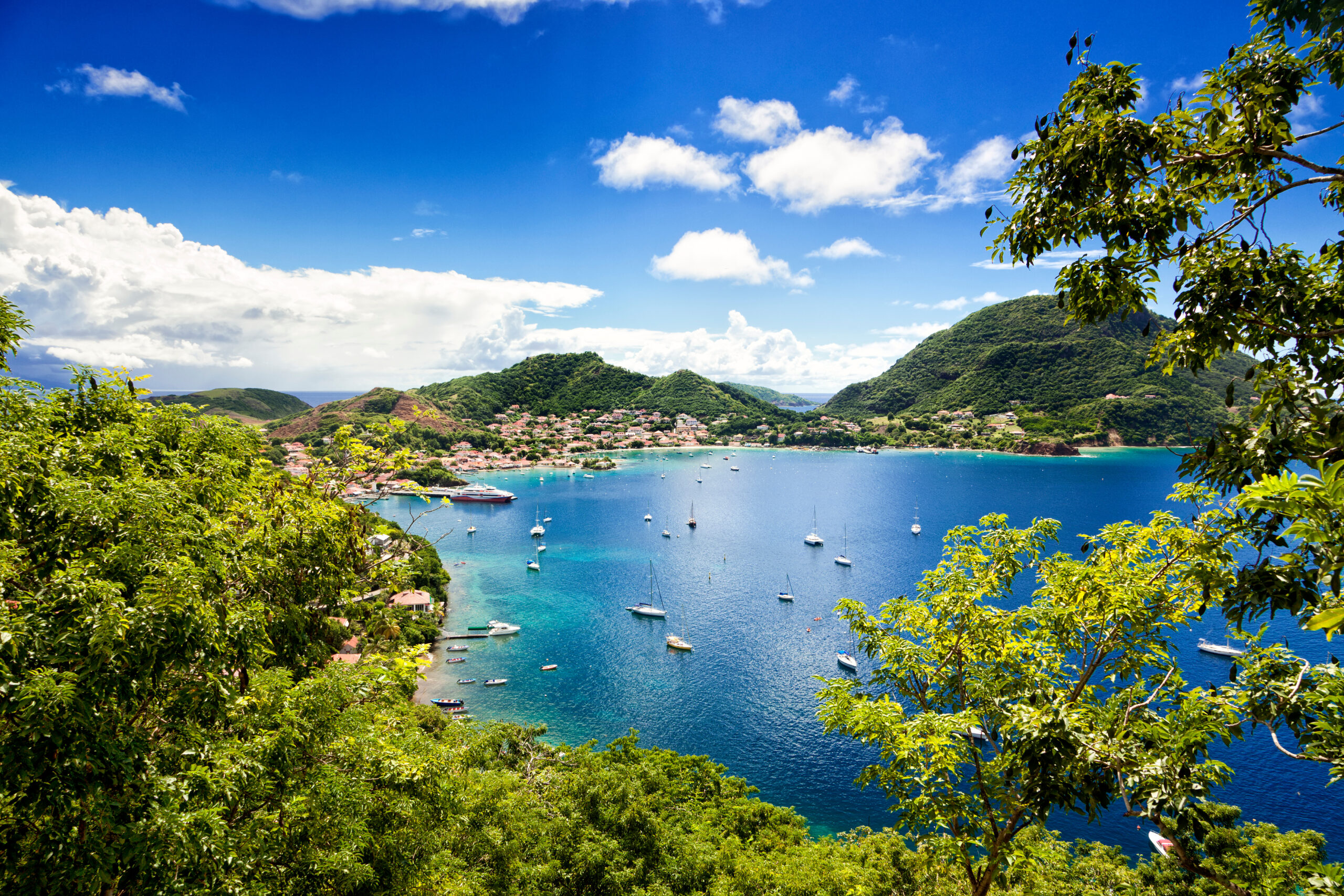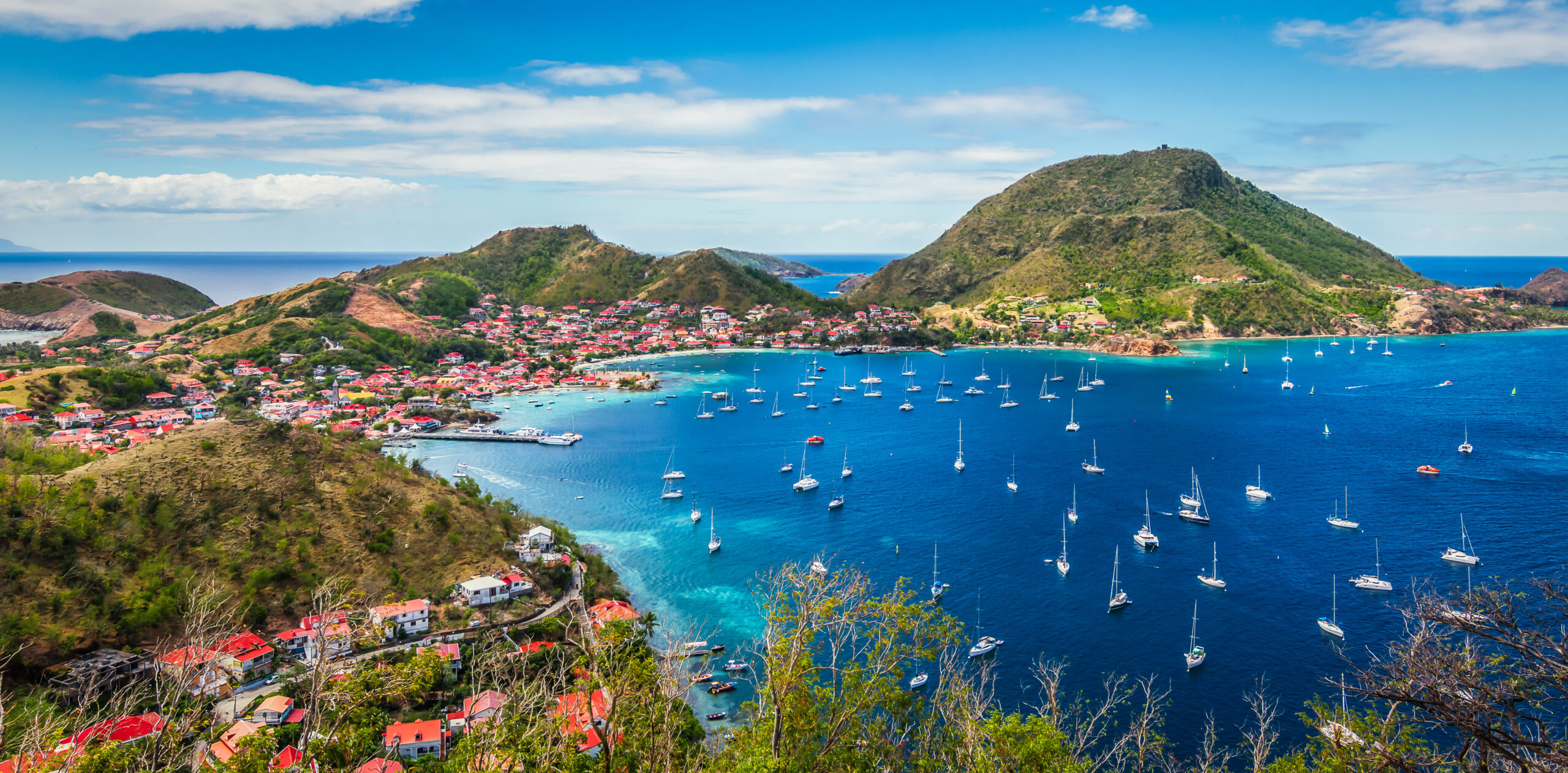The TransformAr project aims to demonstrate solutions and pathways to adapt to climate change. Part of this project is the 6 territories that serve as demonstrators for the various innovative solutions. Guadeloupe is one of these demonstrators due to its high exposure to climate change.
Climate change in Guadeloupe
The archipelago is susceptible to various climate challenges. Rising sea levels threaten coastal areas, and the increasing intensity of storms poses risks to infrastructure. Temperature shifts and the potential loss of biodiversity add urgency to the situation. The archipelago is often referred to as ‘L’île aux Belles Eaux’ or the ‘Island of Beautiful Waters.’ However, water scarcity is a pressing issue in this beautiful region, presenting significant challenges for both the environment and the local community. To protect Guadeloupe’s unique environment, there is a crucial need for sustainable practices, resilience-building, and heightened awareness in addressing these climate-related issues.
Nudging experiment
One of the solutions tested in Guadeloupe is a Nudging experiment led by Verhaert. This experiment is targeting tourists staying in the archipelago. The goal is to make tourists more conscious about their water consumption and help them use less water in the shower. To do this, we created a nudging kit. The materials in this kit will be installed in the rooms where the tourists are staying. The participating hotel managers can find 3 different types of nudging materials:
- A shower sensor: This shower sensor is constructed by Aguardio. It measures how long the shower is running and shows this on the screen. The timer will pause when the water is paused during the shower.
- Nudging stickers: There are 2 stickers included in the kit. One sticker will be placed close to the sensor in the shower. The other sticker will be put in another visible place in the bathroom. The stickers are used as reminders to reduce shower time.
- An informational brochure: This brochure contains all the needed information on the experiment, why we do it, how it works, etc. It also contains some tips on how to reduce the time in the shower.
Guadeloupe is one of the six territories where TransformAr is testing and demonstrating solutions and pathways that are deemed essential for climate and social resilience to achieve rapid and far-reaching transformational adaptation (TA). The reason this archipelago is chosen is due to its high exposure to climate change. Guadeloupe is often referred to as “L’îles aux Belles Eaux” or the “Islands of Beautifull Waters.” However, water scarcity is a pressing issue in this beautiful region, posing significant challenges for both the environment and the local community.
Nudge tourists to use less water
One of the solutions that are implemented by the TransformAr consortium on Guadeloupe is a nudging experiment that will target tourists staying on the archipelago. The idea of this experiment is to make tourists more conscious about their water consumption and help them use less water in the shower. In order to do this, a nudging kit is composed. These materials will be installed in the rooms where the tourists are staying. In this kit the hotel manager can find 3 different types of nudging materials:
- A shower sensor: This shower sensor is constructed by Aguardio. It measures how long the shower is running and show this on the screen. The timer will pause when the water is paused during the shower.
- Nudging stickers: There are 2 stickers included in the kit. One sticker will be placed close to the sensor in the shower. The other sticker will be put on another visible place in the bathroom. The stickers are used as reminders to reduce the shower time.
- A informational brochure: This brochure contains all needed information on the experiment, why we do it, how it works, etc. It also contains some tips on how to reduce the time in the shower.



Goals of the experiment
This nudging experiment has the goal to reduce the water consumption of tourists in Guadeloupe. By reducing the shower time by just one minute, water consumption can be reduced by up to 10 liters. Besides this, we hope the tourists will be more conscious about all of their water consumption.
The experiment is taking place in two phases: The first phase is the Pilot Experiment and is currently taking place. The second phase is called the Full experiment and will be taking place from the end of February until August.






